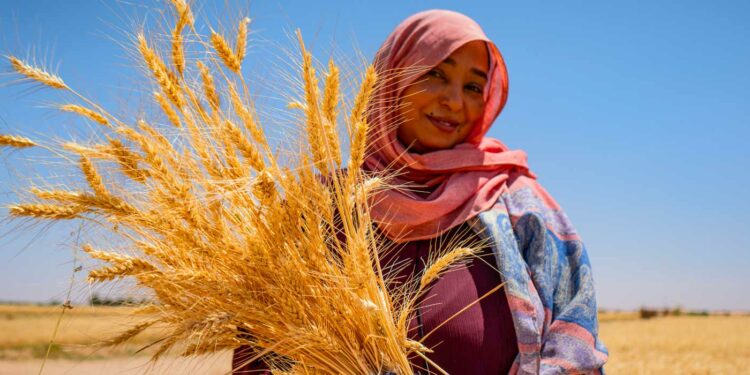
Share on FacebookShare on TwitterShare via Whatsapp
When conflict forced Hajer Othman,an IT specialist from Khartoum,to flee her home in 2023,she arrived in her mother’s village in northern Sudan with uncertainty—but also determination. The idea of taking up farming initially seemed impossible. Yet,the land soon became a way to reclaim control over her life and her family’s future.
Supported by the Sudan Emergency Wheat Production Project (SEWPP),Hajer began cultivating wheat and vegetables. Within months,she not only provided food for her family but also earned over $1,000,surpassing Sudan’s average annual income. Her success inspired other displaced women to join forces,forming a network of resilient female farmers who turned arid lands into productive fields and regained economic independence.
Spain: Bisila Bokoko,the woman who learned to “dance” with fear
The project’s impact is measurable: across Gezira,River Nile,Northern,and White Nile states,over 313,000 smallholder farmers,including 22,000 women,received certified seeds,fertilizers,and agricultural training. Wheat production increased by 20–30%,generating 645,000 additional tons across 300,000 hectares,improving food security and creating new income opportunities.
For farmers like Ahmed Awad,the transformation has been life-changing: “I could barely afford quality seeds before. Now my wheat yield has increased by nearly a third,and the extra income allows me to install solar panels and cover other essential expenses.”
The success of SEWPP Phase I was made possible through collaboration with the African Development Bank,via the African Emergency Food Production Mechanism,which supported seed and fertilizer distribution and technical training. The initiative has reached 14 million farmers across 35 countries,demonstrating that investing in smallholder agriculture directly translates to stability and resilience in crisis-affected regions.
The Phase II of Sudan’s Emergency Wheat Production Project,launching on October 16,2025,promises to expand this impact,creating even more opportunities and proving that in fragile contexts,determination,innovation,and collaboration can turn adversity into hope. “This project gave us the tools to stand on our own again,” Awad concludes. Sudan is no longer just producing wheat; it is cultivating a future of dignity and self-reliance.
United News - unews.co.za